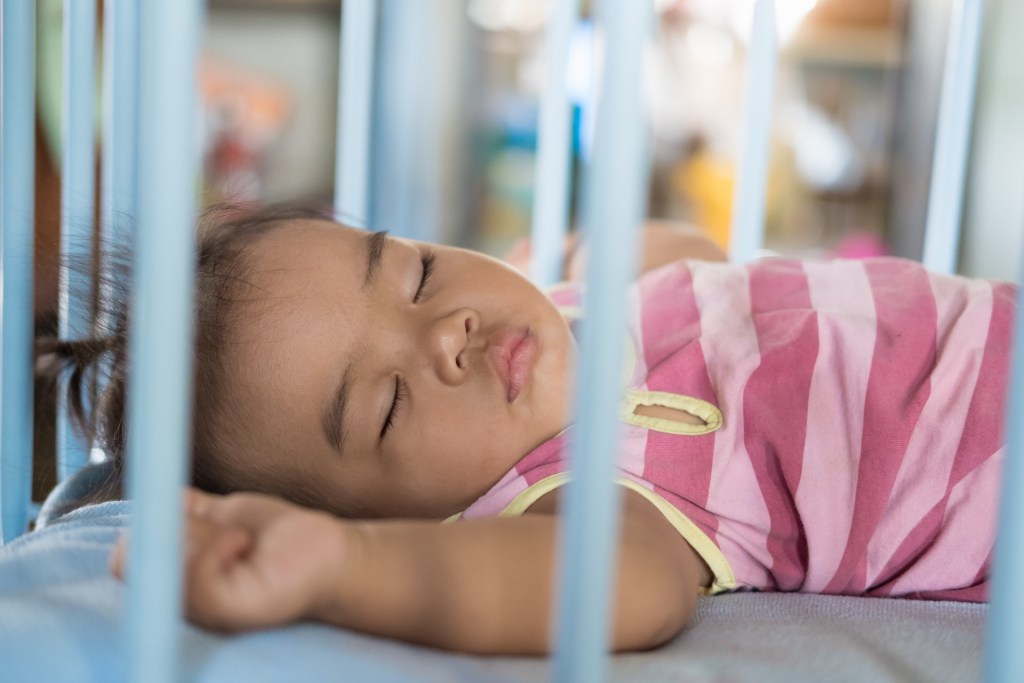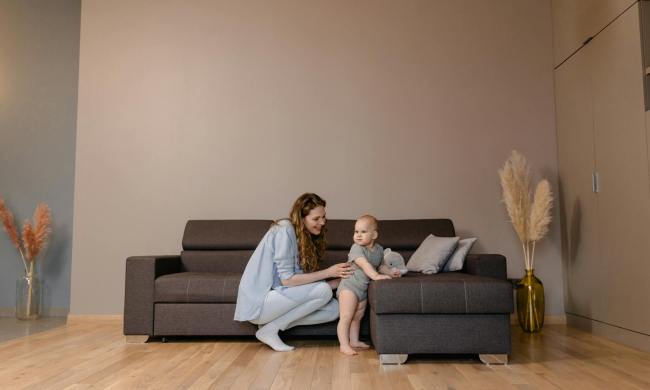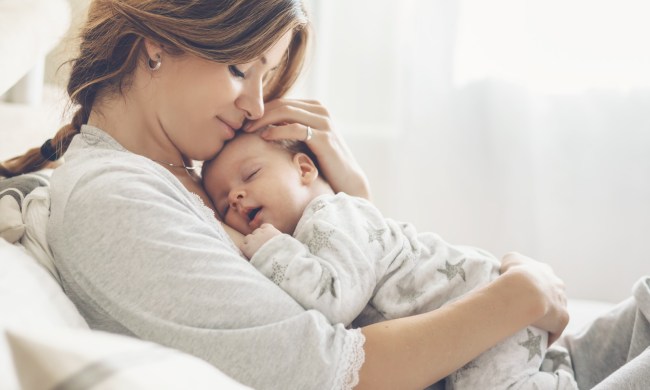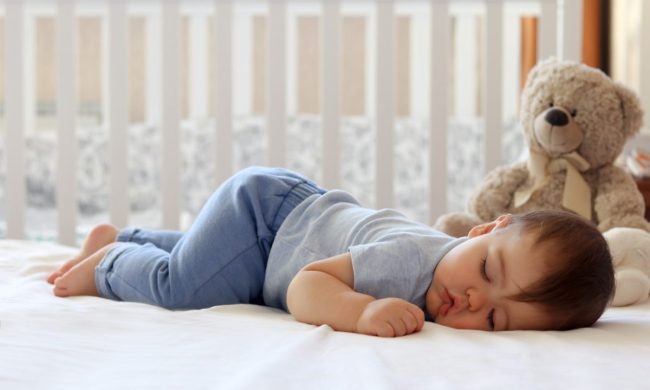Bedtime can be one of the sweetest bonding times between caregivers and babies. Rocking, patting, singing, and nursing or bottle-feeding baby to sleep are wonderful ways to strengthen your relationship with your little one, but after a few months, you may wonder if your infant can go to sleep without the in-depth routine.
While every baby is different, falling asleep on their own is possible. It’s called self-soothing, and it’s when babies can fall asleep or return to sleep after waking on their own, and it’s a goal many parents shoot for. But babies follow their own schedules and may not be ready for this milestone when you want them to be.
Don’t worry, your little one will let you know when they’re ready to self-soothe. However, there are a few things you can do to encourage your little one on their self-soothing journey. If you think your baby is ready for this big step, read on for our tips on teaching your baby to self-soothe.

What is self-soothing and why is it important?
Self-soothing occurs when your baby can fall asleep or go back to sleep on their own with little to no crying. For some babies, self-soothing occurs naturally as they develop, but others may need a little help to learn this important skill.
Some people believe self-soothing is a vital skill that babies should be taught, while others think babies shouldn’t have to self-soothe until they develop the skill on their own. There is no firm scientific evidence that self-soothing babies are healthier or more independent than those who prefer help from their caregivers when it’s bedtime. So, if you cherish those nighttime snuggles and feeds, there’s no reason to force the issue.
At what age do you allow babies to self-soothe
If your little one is ready to self-soothe, they’ll most likely give you a few hints like falling asleep more quickly and with less fuss. It’s important to keep in mind that infant sleep patterns are influenced by their caregivers, and higher levels of sleep issues are related to caregivers who are stressed or depressed. If your mental health is suffering because of constant nighttime waking, it might be time to think about teaching your baby to self-soothe for the benefit of both of you.
Experts agree that most babies begin to show self-soothing behaviors before 4 months of age, and by 6 months old, they can safely go up to 8 hours with a feed. Babies should master self-soothing by 8 or 9 months before separation anxiety begins to manifest.

Baby self-soothing techniques
When it’s time to teach self-soothing, there are myriad methods parents swear by. From cry-it-out and the extinction method to more gradual, less stressful approaches, some are controversial, while others are not. Regardless of the method you choose, here are five tips you can follow to help ensure your chosen method has the best chance of working.
Create a calm environment
No one sleeps well in a bright, noisy room. Make sure your baby’s room is dark and there are no distracting lights. A small nightlight is fine. Also, consider adding a white noise machine to help cover any sounds from outside the nursery. Always follow safe sleep guidelines and ensure your baby’s crib is free of toys, blankets, and other items that could be dangerous or encourage them to stay awake.
Set regular bedtimes and naptimes
Babies thrive on routine. Knowing what to expect and when not only calms anxieties babies may have, but it also lets them know what’s expected of them. By establishing and sticking to a regular sleep schedule, babies will start to get tired on a regular schedule and have an easier time nodding off at the appropriate time.
Start a bedtime routine
Similar to having a set sleep schedule, having a regular routine is a great way to ease your baby into the mindset necessary for sleep. A warm bath with a lavender-scented baby wash followed by a feed and other wind-down activities lets your little one know bedtime is coming and helps them relax into sleep.
Offer an age-appropriate security object
Babies younger than 1 year should sleep in a bare crib with no blankets or stuffies and a well-fitting sheet. If your child is old enough, consider giving them a stuffed animal to help them feel secure at night. If your baby is too young to sleep with a lovey, consider a pacifier for overnight soothing. Never put your baby to sleep with a bottle of formula.
Feed before bedtime
Nursing or bottle-feeding to sleep can hinder self-soothing because your little one is actually being soothed by the feed and motion of suckling. Consider moving your evening feed to an earlier part of the bedtime routine, like right after baby’s bath, or stop the feed before your baby nods off at the breast or bottle.



